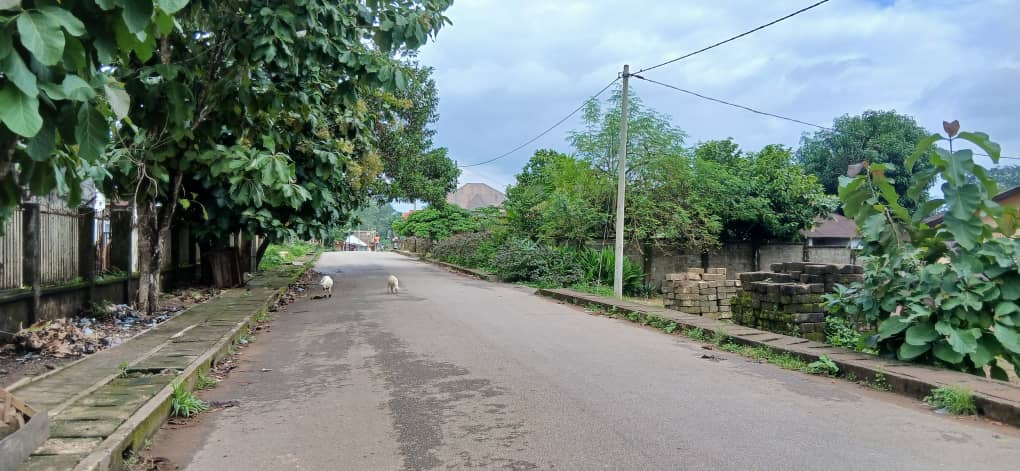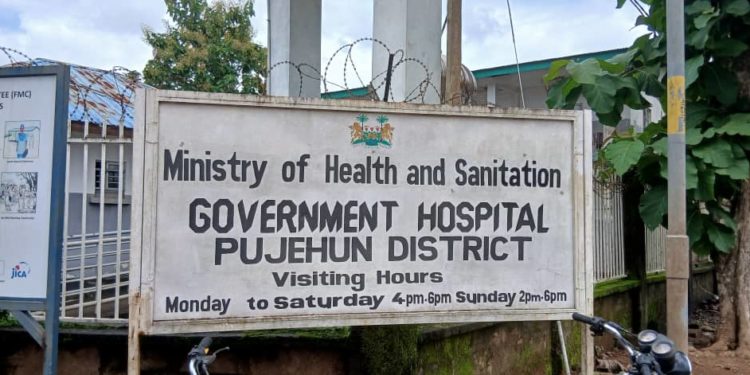By Brima Sannoh
In the remote southern district of Pujehun, Sierra Leone, a silent crisis continues to take root, one that rarely captures headlines but affects countless lives: mental health. A recent World Health Organization (WHO) study reveals that nearly one in four residents in the district has experienced some form of mental health condition, including depression, anxiety, or Post-Traumatic Stress Disorder (PTSD). Nationally, the WHO estimates that 10% of Sierra Leone’s population of seven million suffers from mental health issues, a figure believed to be a significant undercount due to pervasive underreporting and social stigma.
This mental health burden is not surprising in a nation still reeling from a legacy of conflict, epidemics, and poverty. Decades of adversity, from the 1991-2002 civil war, to the 2014 Ebola outbreak, and recurrent natural disasters, have left psychological scars that remain unhealed. Yet, the conversation around mental health is stifled by cultural taboos and the stark absence of adequate services.
For centuries, mental health services in Sierra Leone have been synonymous with the Sierra Leone Psychiatric Hospital, formerly the Kissi Lunatic Asylum, established in 1820 as the oldest psychiatric institution in sub-Saharan Africa. To this day, it remains the country’s only in-patient mental health facility, with a capacity for just 150 patients.
Yet the demand far outweighs this modest provision. A JSI research study suggests that over 700,000 Sierra Leoneans suffer from severe mental health conditions, many of them war survivors. The Ebola epidemic further exacerbated the crisis, with almost all of the 14,124 people infected enduring psychological trauma. Shockingly, despite these figures, the country counts only two psychiatrists, two psychologists, and nineteen mental health nurses, woefully inadequate for national needs. Consequently, less than 1% of affected individuals receive any form of mental health care.
In Pujehun, mental health remains shrouded in stigma and misconceptions. Ruben Rogers, District Focal Person for Non-Communicable Diseases at the Ministry of Health in Pujehun, acknowledges that many prefer traditional or religious remedies over medical intervention. “Mental health remains a taboo subject here. People prefer to consult traditional healers or spiritual leaders, which complicates our ability to gather data and offer standard care,” he told ManoReporters.
This silence often leads to tragic personal struggles. Juliana Amara, a widow from Pujehun town, slipped into depression after her husband was killed in a road accident just two months after their wedding in 2019. Overwhelmed with grief and the burden of raising two children alone, Juliana recounted: “I became hopeless. It was too much to bear, and I lost my mind. My family was helpless until close friends intervened and helped me access treatment.”
Similarly, Ishmael Edward, another survivor, turned to drugs in a desperate bid to cope with unemployment and frustration. His dependency spiralled into paranoia and violent episodes, alienating him from family and community. Both stories reflect broader, unspoken narratives of pain, marginalisation, and eventual resilience.
The government has made modest strides in recent years, revising the Mental Health Policy and Strategic Plan and enhancing district-level mental health governance. However, activists argue that these efforts are insufficient without a dedicated national budget line for mental health, modernised mental health legislation, structured training for specialists, and reliable access to psychotropic medications.
Statistics from the Ministry of Health and Sanitation (MOHS) show a steady rise in diagnosed mental health cases. In 2024 alone, over 2,000 cases of mental disorders were recorded nationwide, a significant increase reflecting both growing awareness and worsening conditions. Mr. Rogers notes that under the leadership of Health Minister Dr. Austin Demby, awareness campaigns have been intensified, and district-level services are being cautiously scaled up. Still, the infrastructure and workforce remain critically under-resourced.

The Truth and Reconciliation Commission (TRC), established post-war, recognised the widespread psychological damage inflicted by the conflict. Its final report urged sustained investment in mental health and reconciliation initiatives. Yet, 25 years after the war’s end, civil society groups lament the government’s sluggish implementation of these recommendations.
The Mental Health Coalition of Sierra Leone, a civil society organisation, recently decried the outdated and limited mental health services nationwide. Their findings reveal a stark reality: no fully operational psychiatrists, and the first cadre of psychiatric nurses only recently trained. Furthermore, persons with psychosocial disabilities are often ostracised, facing routine human rights abuses.
Mohamed Jaward of the Health for All Coalition Pujehun summarised the situation grimly: “The lack of national and international commitment to mental health is dangerous. Every day, new cases emerge, many linked to harmful drug use, yet the treatment gap remains vast.” He emphasised that beyond community awareness, sustainable policy interventions, international support, and comprehensive healthcare investment are essential to stem the crisis.
A Call for Action
The mental health crisis in Sierra Leone, particularly in places like Pujehun, is more than a medical concern, it is a human rights issue, a public health emergency, and a silent threat to national stability. Without urgent and comprehensive interventions, the personal tragedies of individuals like Juliana and Ishmael risk becoming the collective fate of countless others. As the country seeks to heal from its turbulent past, it must recognise that true recovery requires not just rebuilding infrastructure, but also restoring minds.
This report was produced with support from the African Transitional Justice Legacy Fund (ATJLF), through the Media Reform Coordinating Group (MRCG), under the project: Engaging Media and Communities to Change the Narrative on Transitional Justice Issues in Sierra Leone.






















